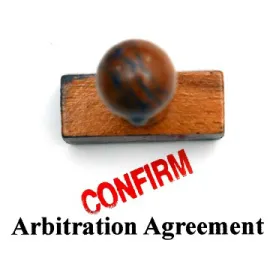International arbitration inevitably involves different parties from different jurisdictions. The parties, their counsel, the seat, the arbitrators, the governing law of the contract, the setting of the relevant facts, and the location of the relevant documents can all be based in different jurisdictions across the world. Each of these jurisdictions may have different rules for legal professional privilege – and what is privileged in one country may not be privileged in another. This raises the question: which jurisdiction's privilege rules can the parties rely upon?
PRACTICE AND PROCEDURE
The arbitration agreement itself will almost always be silent on which jurisdiction's legal professional privilege rules apply – and perhaps with good reason. Disputes are unlikely to have arisen when contract terms are being agreed. Even if future disputes may be predictable, the potential scope of documents to be produced in relation of those disputes may not be. If considering privilege rules at the transactional stage, parties may not know what privilege rules will ultimately prove helpful to themselves – or their opponents – in protecting against production of sensitive documents in any future arbitration proceedings. Parties may therefore consider that such an issue is best put off to be addressed if, and only if, required during the course of the arbitration proceeding.
If parties to a dispute are inclined to agree to the applicable rules of legal professional privilege, a convenient time to do so might be in the arbitration's first procedural order, which among other things usually sets out the procedural rules and timetable for document requests and production. This may assist parties in making their claims of privilege in response to requests to produce (eg in a Redfern Schedule), and in managing their risks of waiving privilege as the arbitration progresses. From a more practical perspective, parties will also have greater certainty in undertaking their own internal privilege review of documents, and thereby reduce the risk of repeating this often time-consuming and costly process if the wrong privilege rules are applied in deciding which documents are protected from disclosure.
Nevertheless, in many instances, the parties may not agree on, and the first procedural order may not expressly deal with, applicable rules of privilege. In such cases, institutional arbitration rules rarely address the privilege rules to be applied. The Singapore International Arbitration Centre (SIAC) Rules are one exception, although they merely affirm the arbitral tribunal's power to determine the issue (SIAC Rule 27(o)). If the International Bar Association (IBA) Rules for Taking Evidence in International Arbitration (IBA Rules) are adopted, they will provide some non-binding guidance to the arbitral tribunal in approaching questions of privilege (IBA Rules Art 9(4)). This includes taking into account the expectations of the parties and their advisors at the time the privilege is said to have arisen (IBA Rules Art 9(4)(c)) and the need to maintain fairness and equality between the parties (IBA Rules Art 9(4)(e)). However, the choice of law for privilege remains a matter to be determined by the arbitral tribunal (IBA Rules Art 9(2)(b)).
Consequently, in these circumstances, arbitral tribunals will commonly have discretion to determine the applicable privilege rules in the event of a dispute. Overarching principles of fairness and equality between the parties – which institutional arbitration rules generally require an arbitral tribunal to adhere to – will be important. Arbitral tribunals will also be conscious of ensuring parties have a reasonable opportunity of presenting their case, as otherwise the award may be subject to challenge.
COMMON APPROACHES TO PRIVILEGE RULES
In practice, arbitral tribunals will likely adopt one the following approaches to resolve questions of what privilege rules to apply:
-
The ‘closest connection’ test – this looks at various factors connected with the document in question to determine what jurisdiction the document has the closest connection to. Factors include the jurisdiction in which the document was created, the jurisdiction of the lawyers it was produced by or for, the jurisdiction of the parties, and the jurisdiction the document is located in. Whilst this test takes into account a broad range of factors, it can result in disparate rules of privilege applying to different documents.
-
The 'most favoured nation' test or the 'least favoured nation' test – as the names suggest, the arbitral tribunal will apply to all parties' documents the privilege rules of the jurisdiction with the most favourable privilege rules (ie offering the most protection), or the jurisdiction with the least favourable privilege rules. This achieves fairness through the consistent application of privilege rules to all parties. However, the drawback of these tests is that parties' expectations of what privilege rules applied, and the protections therefore available, at the time that documents were brought into existence may not be met (certainly if the least favourable privilege rules applies), and parties could gain or lose privilege protection accordingly.
-
An autonomous privilege code – this involves the arbitral tribunal creating its own privilege code. This could perhaps seek to address drawbacks with the closest connection test or the most favoured nation/least favoured nation tests, but in doing so risks creating unfairness between the parties if the code is not equally weighted.
A stark example of the potential impact of privilege expectations not being met in arbitration might be if an arbitration is commenced in relation to an underlying court proceeding (eg in an insurance or indemnity context) and different rules of privilege are applied by the arbitral tribunal to those of the jurisdiction in which the underlying litigation was conducted. In such a scenario, a party might find itself in the unnerving position of having just run a court proceeding under certain expectations of privilege protection only to have its seemingly privileged documents at risk of disclosure in the arbitration.
In general terms however, arbitral tribunals are commonly focused on both bringing equality of treatment as between the parties and seeking to ensure the parties’ legitimate expectations as to relevant protections from disclosure are satisfied, so as to ensure the final award in the arbitration is not potentially open to challenge.
SANCTIONS FOR FAILURE TO PRODUCE A DOCUMENT – THE AUSTRALIAN POSITION
What if a party does not agree with the arbitral tribunal's determination on privilege and, as a result, does not produce a document which the party has been ordered to be produce?
For an Australian-seated arbitration, an inference from the failure to adduce evidence can be drawn at common law under the Jones v Dunkel rule (Jones v Dunkel (1959) 101 CLR 298), but this is limited to an inference that the evidence would not have assisted the party that failed to adduce the evidence. This inference may not be strong enough for the opposing party to want to rely on alone. Adoption of the IBA Rules would permit the arbitral tribunal to draw a stronger inference in such a situation – that such evidence would be adverse to the interests of the party that failed to adduce it (IBA Rules Art 9(5)). However, again, the opposing party may not want to rely on an inference alone when the contents of the document sought could potentially carry much more persuasive force.
As such, the opposing party could alternatively seek production of the document through Australian courts under various avenues provided under the International Arbitration Act 1974 (Cth) (IAA). This includes by subpoena (IAA s 23), an order to produce the document to the court and arbitral tribunal (IAA s 23A(3)), or by utilising the general power of a court to assist in the taking of evidence under Article 27 of the UNCITRAL Model Law on International Commercial Arbitration (Model Law) (IAA ss 16(1), 23(6), 23A(6)). However, a court will only intervene if it has permission from the arbitral tribunal to do so and provided the court would otherwise have the power to compel production of the document in proceedings before that court. Further, these statutory powers of intervention by Australian courts to assist evidence gathering are only available for Australian seated arbitrations (Samsung C&T Corporation, Re Samsung C&T Corporation [2017] FCA 1169; see also Model Law Art 1(2)).
CONCLUSION
Privilege is an important issue that parties should consider at the commencement of an international arbitration. Parties can seek to reach agreement on the applicable privilege rules in the arbitration's initial procedural order. If agreement cannot be reached, parties can consider adopting the IBA Rules to provide the arbitral tribunal with some guidance on questions of privilege.
If disputes about privilege do arise, parties should be conscious of the different approaches that will be available to the arbitral tribunal, and what is available to the parties in the event of non-compliance.





 />i
/>i

